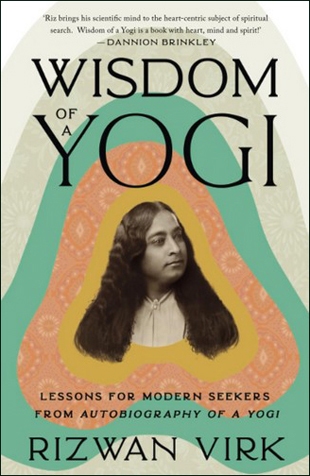Almost twenty years ago, we reviewed the 60th anniversary edition of Autobiography of a Yogi, saying that it belongs in every person’s library. This new book by entrepreneur and spiritual seeker Rizwan Virk reminds us why this is so.
Autobiography of a Yogi was written by Paramahansa Yogananda, an Indian swami, compiling stories from his extraordinary life, relationships, and teachings. The original edition was published in English in 1946 after a period of twenty-five years during which Yogananda taught Hinduism, yoga, meditation, and other spiritual disciplines in the United States. Millions of copies later, it is clear that his classic work “opened the floodgates and inspired a much larger number of Westerners to undertake the spiritual quest,” in the words of Virk.
Yogananda’s influence has been deep and wide in the West. He was the first prominent swami to be hosted at the White House, by President Calvin Coolidge in 1927, and Steve Jobs of Apple was known to reread the book frequently and gift it to colleagues and friends. Virk calls its teachings and stories, “ancient wisdom for modern times.”
Fourteen lessons for spiritual seekers are elucidated by Virk from Yogananda’s classic work in these pages. These include “You don’t need to go to the Himalayas” (lesson 1) and “Setbacks may be a part of your story” (lesson 11).
We found lesson 8 to be most relevant of all: “Practice every day, no matter how much time you have.” Here, Virk explains:
“The traditional approach — joining a monastic order — isn’t practical for most modern seekers. We have jobs, families to support and other interests that are part of our karmic path. In fact, Yogananda was called the 'first modern guru' because he … taught techniques to those who lived and worked in the world, to those referred to as the 'householders' in his time.”
